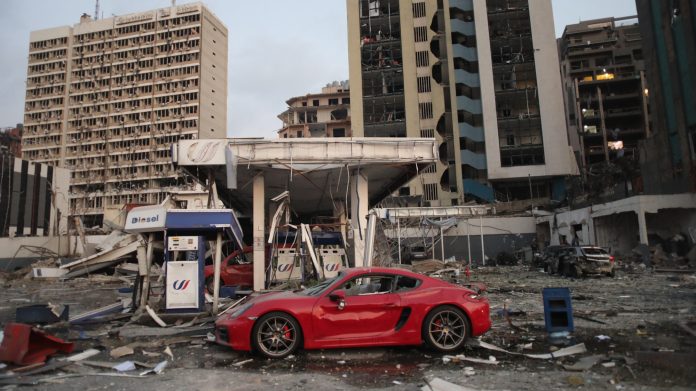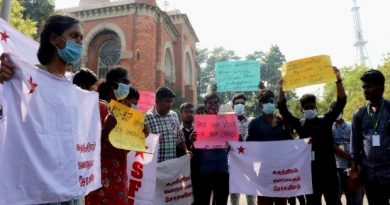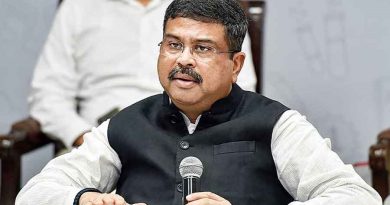Lebanon: 15 Years Of Civil War, $ 92 Billion Debt, Explosions
Lebanon: 15 years of civil war, $ 92 billion debt, half the population below the poverty line, and now explosion. The world has once again turned its eyes to the terrible explosion in Lebanon two days ago. The situation of this country already going through bad times is going to get worse after this explosion.
Lebanon has been experiencing civil war for the past 15 years. Now he will have to face a worse situation due to this terrible explosion, it is believed to be fixed. From 1975 to 1990, Lebanon was in the grip of civil war.
Even after the end of the civil war, Syrian forces remained here for more than two decades and maintained their dominance. After this, in 2005, Lebanese Prime Minister Rafiq Hariri was assassinated. After this, there was a big turn in the political and economic history of the country.
On 21 January this year, a new government was formed in Lebanon. It is a single-party government consisting of Hezbollah and his allies and who are also in majority in Parliament.
On April 30, the government admitted that for the first time in Lebanon’s history, it had failed to repay its international debt. Since then, plans were made to bring the economy back on track and economic reforms in the country
The negotiations with the International Monetary Fund in mid-May are currently stalled and the necessary funds have not been arranged yet. The Lebanese Foreign Minister resigned on 3 August, expressing his opposition to the government’s way of dealing with the crisis.
Lebanon has a debt of $ 92 billion, which is around 170 percent of its GDP. Half of the country’s population lives below the poverty line and about 35 percent of people are unemployed.
PM killed, protests got liberation
For Lebanon, 2005 was a year of liberation from Syria. On February 14, 2005, when a convoy of Lebanese Prime Minister Rafiq Hariri was attacked in a suicide bombing, 21 more people were killed along with him. Syria was the hand of the opposition in this attack.
However, Syria continued to deny this. On the other hand, Hezbollah, a powerful Shiite faction of Lebanon, was also suspected. Following the attack, the Syrian army left Lebanon on 26 April, due to large-scale protests in the country.
Syrian Army in Lebanon for 29 years
Syrian forces had been in Lebanon for 29 years and at one time they had 40,000 soldiers stationed in Lebanon. In a United Nations tribunal, four accused are being held responsible for the killing of Hariri.
This Friday, the court is going to give its verdict on it. Hizbollah chief Hasan Nasrallah has not yet handed over these four accused.
Rafiq Hariri’s son becomes prime minister
In June 2009, Rafiq Hariri’s son Saad Hariri won the election as the leader of the anti-Syrian coalition and was elected Prime Minister of the country. After several months of deadlock with Hezbollah, Saad Hariri was able to form the government in November. In January 2011, Hezbollah toppled the government and formed a government dominated by him in June.
In April 2013, Hezbollah admitted that he had sent his fighters to Syria to fight in support of President Basar al-Assad. In the years that followed, Hezbollah continued to send thousands of fighters to the border with Syria with military and financial support from the powerful Shi’ite country of Iran.
Former army general becomes president with the support of Hezbollah
In October 2016, with the support of Hezbollah, former military general Michael Aoun became president in Lebanon. With this, the political turmoil that has been going on in the country for 29 months has calmed down.
After this, Saad Hariri was again appointed Prime Minister. In May 2018, Hezbollah and his supporters won most seats in the parliamentary elections held in the country after 2009.
Public came on the streets
Hundreds of people took to the streets of the capital Beirut in September 2019 due to the problems facing the common people due to the deteriorating economic condition of the country and the falling currency, and for the next one and a half months there were violent protests that led to Hariri’s government on October 29 Including resigned.
On 19 December, Hezbollah supported Hassan Diab to make him the Prime Minister of the country, which was immediately canceled by the protesters.




